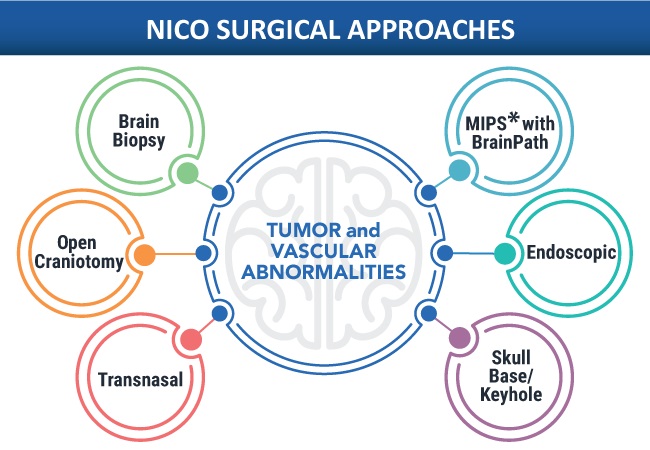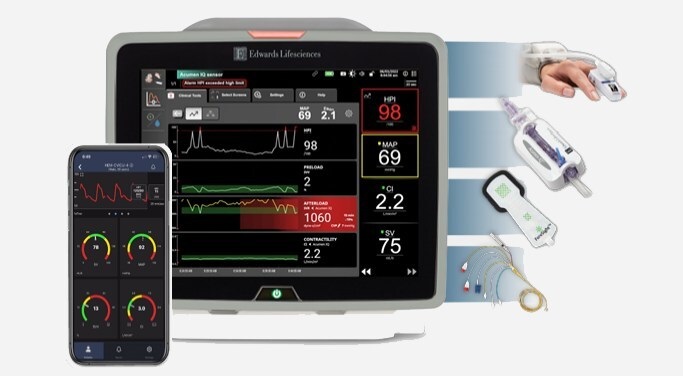UK to Establish Ebola Treatment Center in West Africa
|
By HospiMedica International staff writers Posted on 30 Sep 2014 |
The government of the United Kingdom (UK) has announced plans to construct a new 62-bed medical treatment center to treat victims of the Ebola outbreak in Sierra Leone.
The new facility will include a 50-bed medical unit to treat victims of the disease, which will be staffed by international health workers and Sierra Leonean medical staff. In addition, the facility will hold a 12-bed treatment center for health workers, providing specialist care so that they can respond to the disease as safely and efficiently as possible. The first phase of the center is expected to be constructed and operational within eight weeks, and will be run initially by military engineers and medical staff.
The new treatment center is part of the significant UK support package for tackling Ebola in West Africa, and is closely coordinated with the United Nations. The package includes a commitment to lead and underwrite the provision of a total of 700 treatment beds. More than 200 of these beds are already in the delivery pipeline, with the rest to be delivered over the coming months, working with partners to provide and train the international staff and support needed to operate those beds.
“Bringing this outbreak under control needs significant international cooperation. The UK has committed to taking a leading role in Sierra Leone, a country we know well,” said Rt. Hon. UK Foreign Secretary Philip Hammond, MP. “We will establish the beds and the operating framework, and encourage the international community to step forward to meet the international staffing requirement, in coordination with the UN.”
“Britain is at the forefront of the global effort to tackle this deadly outbreak, having already committed GBP 25 million of support, including frontline treatment and funding for medical research to develop a vaccine,” said UK International Development Secretary the Rt. Hon. Justine Greening, MP. “The scale of the problem requires the entire international community to do more to assist the affected countries, which is why the UK is working with the government of Sierra Leone to build a new medical treatment facility near their capital Freetown.”
“Ebola threatens thousands of people's lives across West Africa and could set back development many decades,” added Justin Forsyth, CEO of Save the Children (Fairfield, CT, USA), which is developing a long-term plan to manage and operate the new facility, once it commences operations. “The key to combating this epidemic is backing front line health workers and underpinning a fractured health system in Sierra Leone—without urgent action to assist medics, many more children and their families will suffer and die from this most appalling and tragic disease.”
Related Links:
Government of the United Kingdom
Save the Children
The new facility will include a 50-bed medical unit to treat victims of the disease, which will be staffed by international health workers and Sierra Leonean medical staff. In addition, the facility will hold a 12-bed treatment center for health workers, providing specialist care so that they can respond to the disease as safely and efficiently as possible. The first phase of the center is expected to be constructed and operational within eight weeks, and will be run initially by military engineers and medical staff.
The new treatment center is part of the significant UK support package for tackling Ebola in West Africa, and is closely coordinated with the United Nations. The package includes a commitment to lead and underwrite the provision of a total of 700 treatment beds. More than 200 of these beds are already in the delivery pipeline, with the rest to be delivered over the coming months, working with partners to provide and train the international staff and support needed to operate those beds.
“Bringing this outbreak under control needs significant international cooperation. The UK has committed to taking a leading role in Sierra Leone, a country we know well,” said Rt. Hon. UK Foreign Secretary Philip Hammond, MP. “We will establish the beds and the operating framework, and encourage the international community to step forward to meet the international staffing requirement, in coordination with the UN.”
“Britain is at the forefront of the global effort to tackle this deadly outbreak, having already committed GBP 25 million of support, including frontline treatment and funding for medical research to develop a vaccine,” said UK International Development Secretary the Rt. Hon. Justine Greening, MP. “The scale of the problem requires the entire international community to do more to assist the affected countries, which is why the UK is working with the government of Sierra Leone to build a new medical treatment facility near their capital Freetown.”
“Ebola threatens thousands of people's lives across West Africa and could set back development many decades,” added Justin Forsyth, CEO of Save the Children (Fairfield, CT, USA), which is developing a long-term plan to manage and operate the new facility, once it commences operations. “The key to combating this epidemic is backing front line health workers and underpinning a fractured health system in Sierra Leone—without urgent action to assist medics, many more children and their families will suffer and die from this most appalling and tragic disease.”
Related Links:
Government of the United Kingdom
Save the Children
Latest Hospital News News
- Nurse Tracking System Improves Hospital Workflow
- New Children’s Hospital Transforms California Healthcare
- Noisy Hospitals Face Threat of Decreased Federal Compensation
- Orthopedics Centre of Excellence Planned for Guy’s Hospital
- Research Suggests Avoidance of Low-Value Surgical Procedures
- U.S. Federal Readmission Fines Linked to Higher Mortality
- Columbia China to Build New Hospital in Jiaxing
- Dubai Debuts Second Robotic Pharmacy Service
- Seattle Hospital Network Shifts Away from Overlapping Surgeries
- ACC to Launch Valvular Heart Disease Program in China
- Mortality Rates Lower at Major Teaching Hospitals
- South Australia to Inaugurate Upscale Hospital
- Raffles to Launch Second Hospital Project in China
- Research Center Tackles Antimicrobial Drugs Challenge
- Miami Cardiac & Vascular Institute Completes Expansion Project
- Hospital Antibiotic Policies Improve Prescription Practices
Channels
Critical Care
view channel_1.jpg)
Cutting-Edge Bioelectronic Device Offers Drug-Free Approach to Managing Bacterial Infections
Antibiotic-resistant infections pose an increasing threat to patient safety and healthcare systems worldwide. Recent estimates indicate that drug-resistant infections may rise by 70% by 2050, highlighting... Read more
Sophisticated Machine-Learning Approach Uses Patient EHRs to Predict Pneumonia Outcomes
Pneumonia, an infection that results in difficulty breathing due to fluid accumulation in the lungs, is one of the leading causes of death worldwide. This condition is particularly challenging to treat... Read more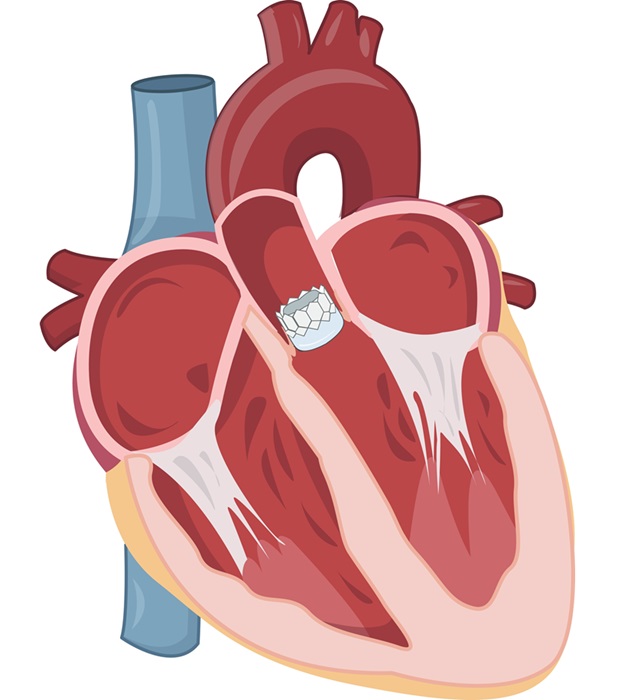
Early TAVR Benefits Patients with Asymptomatic Severe Aortic Stenosis
For patients with asymptomatic severe aortic stenosis (AS) and preserved left-ventricular ejection fraction, current guidelines recommend clinical surveillance every six to twelve months.... Read more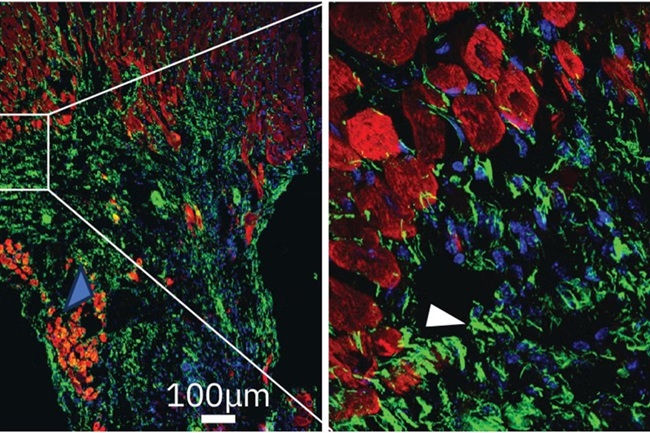
First-Of-Its-Kind Experimental Therapy Enhances Tissue Repair After Heart Attack
Cardiovascular disease remains the leading cause of death worldwide, accounting for one-third of all annual fatalities. Following a heart attack, the heart's natural regenerative ability is limited, resulting... Read moreSurgical Techniques
view channel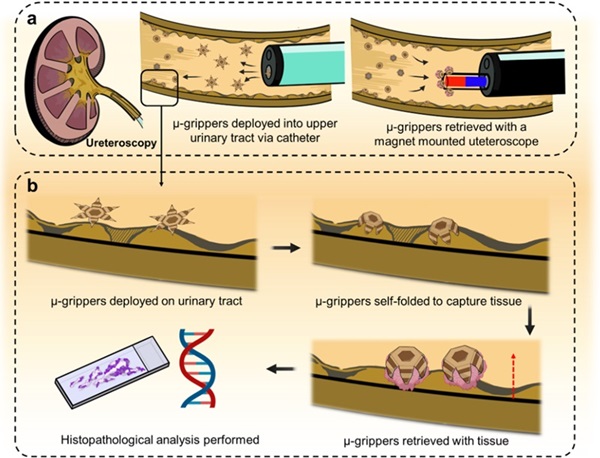
Microgrippers For Miniature Biopsies to Create New Cancer Diagnostic Screening Paradigm
The standard diagnosis of upper urinary tract cancers typically involves the removal of suspicious tissue using forceps, a procedure that is technically challenging and samples only a single region of the organ.... Read moreMiniature Soft Lithium-Ion Battery Could Be Used as Defibrillator During Surgery
The development of tiny smart devices, measuring just a few cubic millimeters, requires equally miniature power sources. For minimally invasive biomedical devices that interact with biological tissues,... Read more.jpg)
TAVI Procedure Supported by Radial Artery Access Reduces Bleeding Complications
The TAVI procedure, or Transcatheter Aortic Valve Implantation, is a minimally invasive technique in which a new aortic valve is inserted through a femoral artery to replace a narrowed old valve.... Read more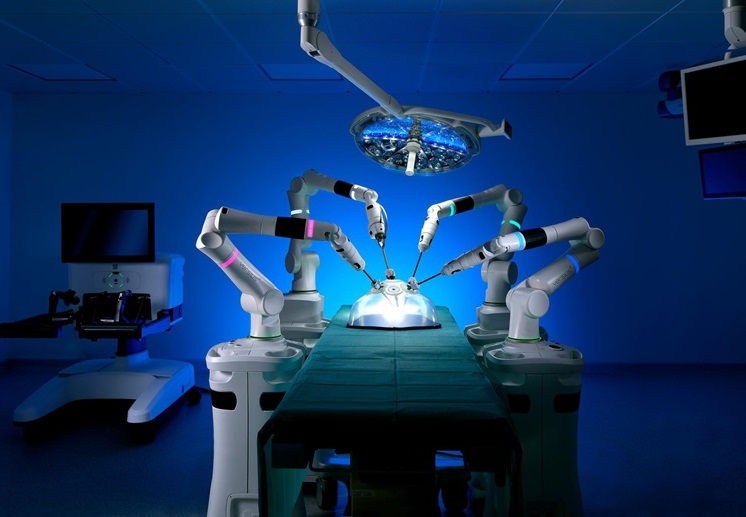
Portable Surgical Robot Seamlessly Integrates into Any OR for Performing Cholecystectomy Procedures
The United States represents a significant market with a strong demand for a flexible surgical robotic system applicable across various care settings. However, there has been a lack of sufficient options... Read morePatient Care
view channel
Portable Biosensor Platform to Reduce Hospital-Acquired Infections
Approximately 4 million patients in the European Union acquire healthcare-associated infections (HAIs) or nosocomial infections each year, with around 37,000 deaths directly resulting from these infections,... Read moreFirst-Of-Its-Kind Portable Germicidal Light Technology Disinfects High-Touch Clinical Surfaces in Seconds
Reducing healthcare-acquired infections (HAIs) remains a pressing issue within global healthcare systems. In the United States alone, 1.7 million patients contract HAIs annually, leading to approximately... Read more
Surgical Capacity Optimization Solution Helps Hospitals Boost OR Utilization
An innovative solution has the capability to transform surgical capacity utilization by targeting the root cause of surgical block time inefficiencies. Fujitsu Limited’s (Tokyo, Japan) Surgical Capacity... Read more
Game-Changing Innovation in Surgical Instrument Sterilization Significantly Improves OR Throughput
A groundbreaking innovation enables hospitals to significantly improve instrument processing time and throughput in operating rooms (ORs) and sterile processing departments. Turbett Surgical, Inc.... Read moreHealth IT
view channel
Machine Learning Model Improves Mortality Risk Prediction for Cardiac Surgery Patients
Machine learning algorithms have been deployed to create predictive models in various medical fields, with some demonstrating improved outcomes compared to their standard-of-care counterparts.... Read more
Strategic Collaboration to Develop and Integrate Generative AI into Healthcare
Top industry experts have underscored the immediate requirement for healthcare systems and hospitals to respond to severe cost and margin pressures. Close to half of U.S. hospitals ended 2022 in the red... Read more
AI-Enabled Operating Rooms Solution Helps Hospitals Maximize Utilization and Unlock Capacity
For healthcare organizations, optimizing operating room (OR) utilization during prime time hours is a complex challenge. Surgeons and clinics face difficulties in finding available slots for booking cases,... Read more
AI Predicts Pancreatic Cancer Three Years before Diagnosis from Patients’ Medical Records
Screening for common cancers like breast, cervix, and prostate cancer relies on relatively simple and highly effective techniques, such as mammograms, Pap smears, and blood tests. These methods have revolutionized... Read morePoint of Care
view channel
Handheld, Sound-Based Diagnostic System Delivers Bedside Blood Test Results in An Hour
Patients who go to a doctor for a blood test often have to contend with a needle and syringe, followed by a long wait—sometimes hours or even days—for lab results. Scientists have been working hard to... Read more
Smartphone-Enabled, Paper-Based Quantitative Diagnostic Platform Transforms POC Testing
Point-of-care diagnostics are crucial for public health, offering rapid, on-site testing that enables prompt diagnosis and treatment. This is especially valuable in remote or underserved regions where... Read moreBusiness
view channel
Hologic Acquires Gynesonics to Strengthen Existing Gynecological Surgical Business
Hologic (Marlborough, MA, USA) has signed a definitive agreement to acquire Gynesonics (Redwood City, CA, USA) for approximately USD 350 million, subject to working capital and other customary closing adjustments.... Read more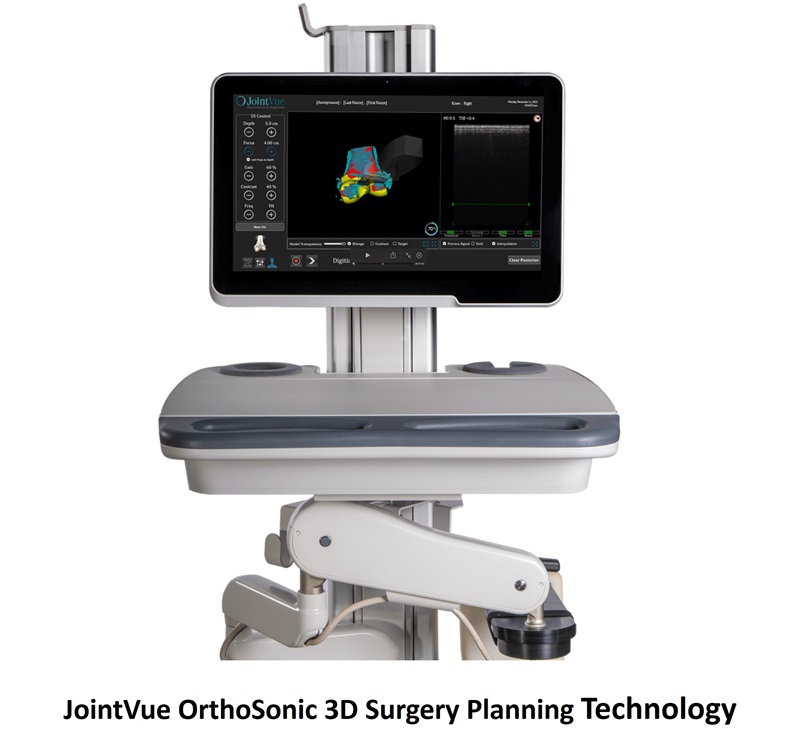







.jpg)






